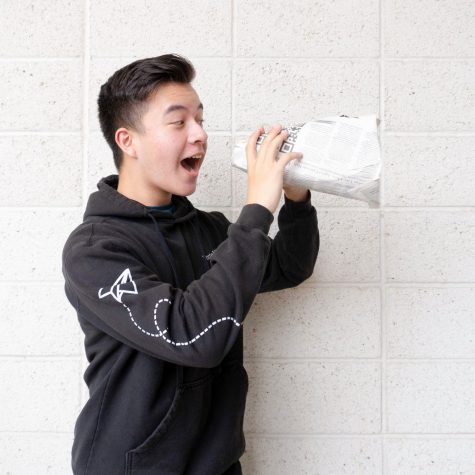Offering More APs to Underclassmen Will Enrich Their Education
November 23, 2020
Portola High prides itself as a highly-competitive school campus, yet our school’s Advanced Placement (AP) curriculum neglects its underclassmen students. Out of the 22 hybrid AP courses offered this year, three are available to sophomores and zero to freshmen.
Given the impact of AP enrollment on post-secondary education, more AP courses should be available for underclassmen students to supplement their academic pursuits.
AP courses give high school students opportunities to explore various career paths and college-level disciplines. They offer weighted GPA points, provide students with a chance to experience post-secondary rigor and satisfy college credits, thereby reducing college finances, according to the College Board.
At Portola High, AP Human Geography, AP Art History, and AP Computer Science are the only AP courses offered to sophomores.
“There are only [three] AP classes, so I didn’t really feel like I had much diversity for what I could pick,” AP Human Geography student and sophomore Nicholas Nieto said. “If I was someone who didn’t like human geography, but I really wanted to get a headstart in Advanced Placement classes, it would be a rough [choice] for me.”
Juniors received more than 16 AP course offerings this year: a stark contrast from just three to sophomores. For senior Sonia Goyal, this academic gap culminated in a curricular bottleneck in which doubling-up on AP courses as an upperclassman was necessary to explore her educational interests and receive post-secondary credit before college.
“There is that pressure to load up on your APs in your last two years [of high school] because those are the only opportunities you get for APs,” Goyal, who is enrolled in four AP courses, said. “Offering more APs earlier on gives students more time to expose themselves to that course and get adjusted when the junior year and senior year are already stressful times, and they have to adjust very quickly.”
Comparatively, Woodbridge High offers seven AP courses to its underclassmen. Out of the school’s 977 AP students – including underclassmen – 87.5% received AP exam scores of three or greater in 2018, according to the 2018-19 Woodbridge High school profile.
“[AP courses] really help prepare you for the general level of work,” AP Human Geography teacher Shameemah Motala said. “I think [offering more APs to underclassmen] depends on the student as well as the department whether the department has classes that are suitable.”
Indeed, not every AP course will be suitable for underclassmen, particularly those that rely on concepts taught in previous classes. And given the rigor of these courses, it is true that upperclassmen and underclassmen alike will endure academic challenges.
However, many of our school’s AP courses – including AP Human Geography, AP Economics and AP Psychology, among others – do not, in fact, rely on previously-taught concepts and have no formal prerequisites aside from grade-level alone.
With this said, it is obtrusively wrong to assume that age and grade alone are accurate indications of maturity and cognitive abilities. Additionally, it is counterproductive to expect our underclassmen to be unsuccessful in the AP curriculum when they receive few AP opportunities to begin with.
Detractors may also argue that underclassmen would overextend themselves with greater AP offerings; however, this argument disregards that enrollment attitudes are unique to every student. Limiting AP offerings because of this narrow, collective assumption about underclassmen is ignorant and demonstrates a lack of faith in younger students.
Furthermore, AP courses reinforce students’ “essential time management and study skills needed for college and career success,” according to the College Board. If underclassmen cannot develop these skills with ample AP courses, how can we simultaneously expect them to be prepared for our school’s rigorous junior and senior year offerings?
Our school’s administration must reevaluate its AP curriculum and offer more of these courses to freshmen and sophomores; however, these courses must be prudently selected based on their current prerequisites and suitability for new AP learners.
In a time when the youth is becoming increasingly exemplary in their fields of interest, it is critical to ensure that our underclassmen receive the academic resources they need to take their education to even greater heights.




